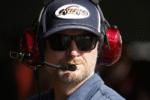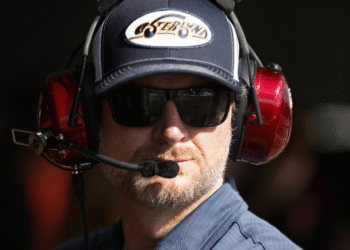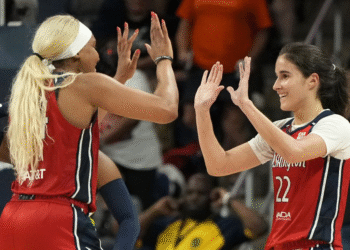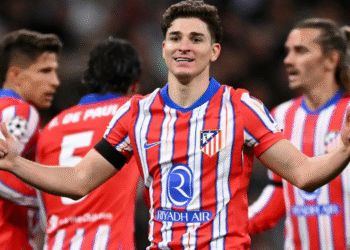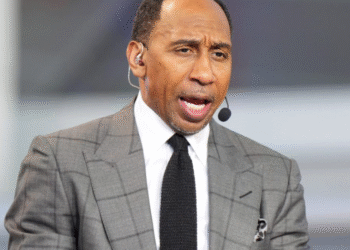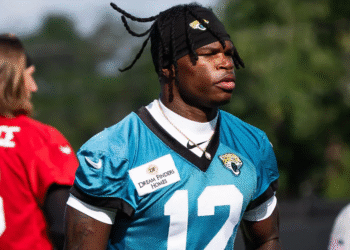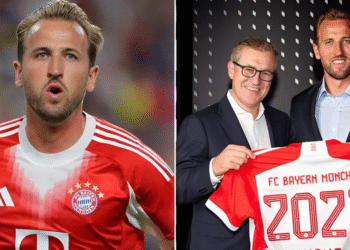NASCAR Cup Series driver Carson Hocevar has landed in trouble after making an offensive comment about Mexico City during a live Twitch stream. The 21-year-old driver was fined $50,000 by NASCAR and has also been ordered to undergo sensitivity training. The punishment comes after Hocevar made remarks that were considered culturally insensitive and inappropriate by many fans and the governing body of NASCAR.
The incident happened while Hocevar was streaming a video game on his personal Twitch account. During a conversation, he made a comment that appeared to mock Mexico City. The comment quickly spread across social media, drawing sharp criticism from fans and even fellow drivers. Many people felt that his words crossed a line and were disrespectful toward a culture and city that recently hosted a major NASCAR event. This backlash prompted NASCAR to step in and take disciplinary action.
NASCAR confirmed in an official statement that Hocevar was being penalized for violating its Member Conduct Guidelines, which promote respect and inclusion. The sport has been working hard over the years to diversify its fanbase and make racing more inclusive for everyone. NASCAR said it expects its drivers to reflect those values both on and off the track.
In addition to the $50,000 fine, Hocevar has been instructed to complete sensitivity training. This program is designed to help participants better understand how their words and actions can impact others, especially in a global sport like NASCAR where fans come from different countries and backgrounds. NASCAR did not provide a timeline for when the training must be completed but stated that it is mandatory.
Hocevar has since apologized for his remark. He took to social media to post a statement saying he was sorry for what he said and that he did not intend to offend anyone. He acknowledged that his comment was inappropriate and promised to do better in the future. However, the apology received mixed reactions. While some fans accepted it and encouraged him to learn from the incident, others felt the apology came only after the backlash and punishment.
This incident also sheds light on the growing scrutiny athletes face when using social media and streaming platforms. In the past, athletes were judged mostly for their performance in games or on the field. But now, with platforms like Twitch, Instagram, and X (formerly Twitter), every word can be heard and shared widely within minutes. This puts more pressure on public figures like Hocevar to be responsible for what they say, even in casual settings.
The timing of this controversy is also sensitive because NASCAR has been expanding its international presence. Just recently, the sport hosted a major exhibition race in Mexico City, which was seen as a step forward in growing its global fan base. Hocevar’s comment, therefore, not only offended a group of fans but also came at a time when NASCAR is trying to build strong international ties.
NASCAR’s response is being seen by many as a firm reminder that it will not tolerate behavior that goes against its values. The organization has previously taken action against drivers and team members for offensive language, inappropriate behavior, and other code-of-conduct violations. In this case, NASCAR seems to be continuing its push to maintain a respectful environment.
Fans, meanwhile, are divided. Some believe that Hocevar’s comment was a poor joke that got out of hand and that the fine was too harsh. Others argue that athletes and public figures must be held accountable for what they say, especially when they represent large organizations and have influence over young fans.
As for Hocevar, this incident could be a turning point in how he conducts himself in public. While he is a talented driver with a growing career, situations like this can tarnish reputations quickly if not handled properly. It remains to be seen how he will bounce back from this and whether he will use the opportunity to grow personally and professionally.
NASCAR has made it clear that actions have consequences, and words matter. In a sport that is watched by millions and increasingly drawing attention from global audiences, maintaining cultural respect is not optional—it’s necessary. The message from NASCAR is simple: if you’re part of this sport, you’re expected to act with respect, on and off the track.

